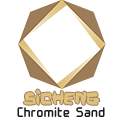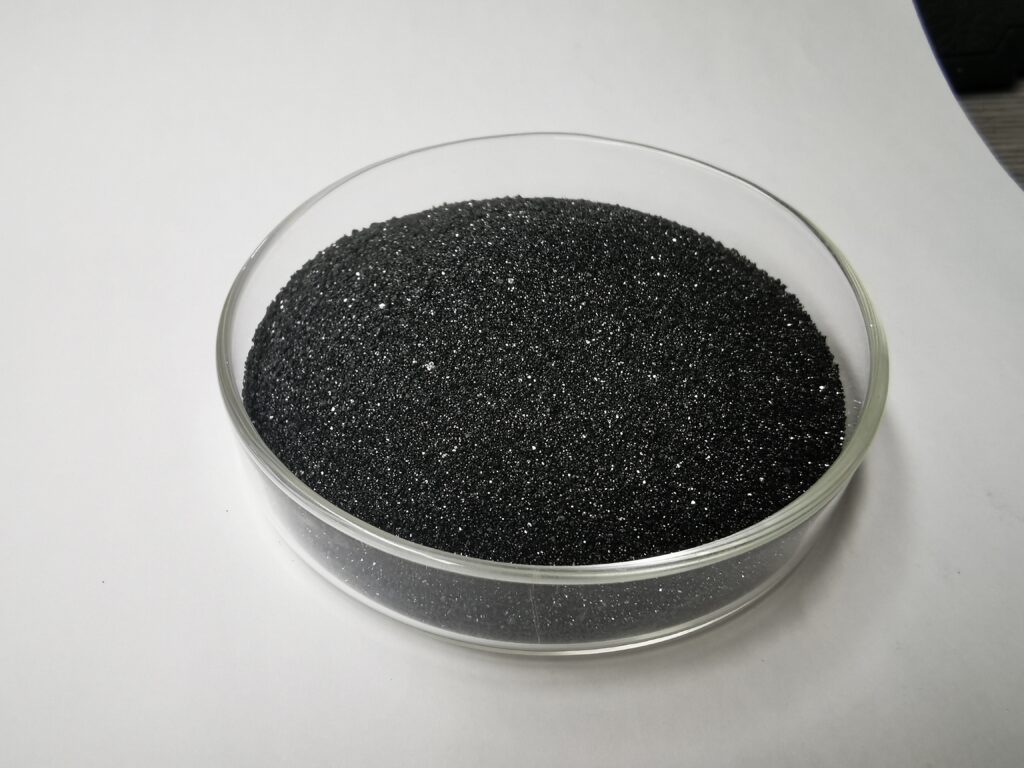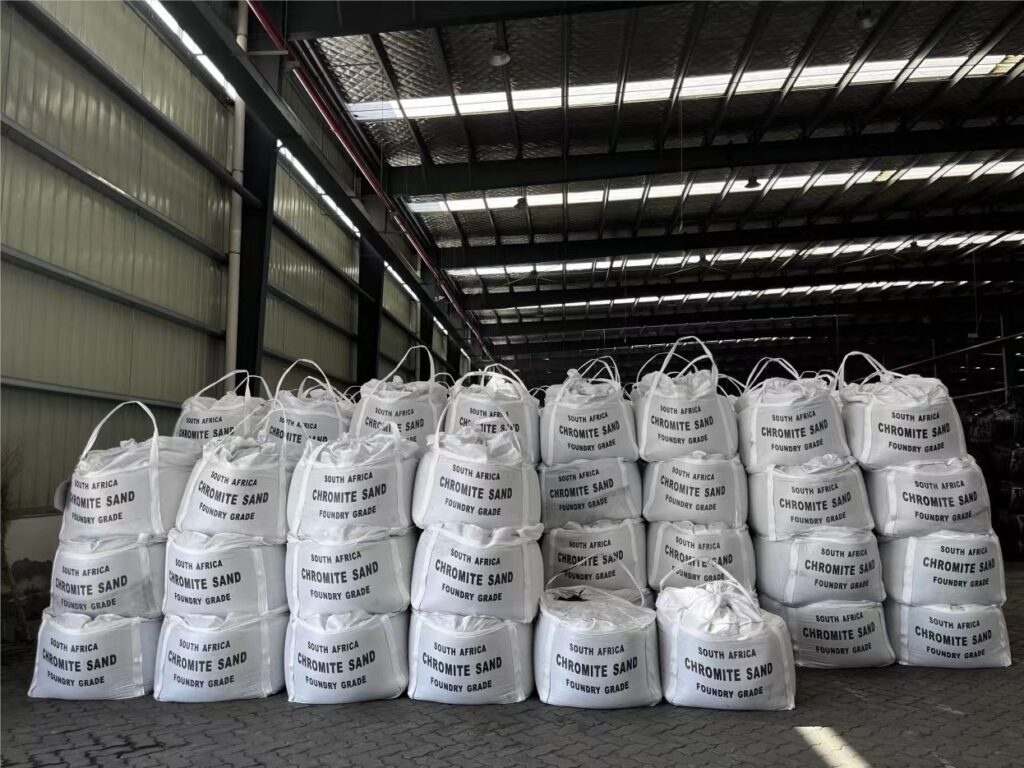COA of the chromite sand. Chromite sand is used in the metal casting industry due to its high thermal conductivity providing the chilling effect. Chromite has a low thermal expansion which helps eliminate expansion defects. Chromite sand has a glossy black appearance and has a greater resistance to metal penetration than zircon. It has a higher acid demand than other sands, which means you will need to use more significant amounts of acid catalyst when furan resin is used. Chromite is generally used for steel castings to provide chilling.
COA of the chromite sand:
Other chemical composition for reference:
FeO: 26.20 %
CaO: 0.30 %
MgO: 9.80 %
Al2O3 :15.50 %
P: 0.003 %
S: 0.003 %
Cr/Fe: 1.6 : 1
LOI :≤0.5%
Water :≤0.2%
Dust :<0.5%
PSD(Particle Size Distribution)
| mesh | +40mesh | +50mesh | +70mesh | +100mesh | +140mesh | -140mesh | AFS | |
| 7.2 | 37.3 | 40.6 | 10.4 | 3.9 | 0.6 | 49.4 | ||
Application of CHROMITE SAND
Chromite Sand in the foundry industry
Its properties enable the material to be used in high duty grey iron and steel foundries as core and mould
making sand. Its high thermal conductivity gives it good chilling properties, low thermal expansion gives rise to good dimensional stability. Its basicity being close to neutral allows the use of a wide range of resin
bonding systems and inorganic binders, it has a high refractoriness and a broad sieve distribution.
Chromite Sand in the steel industry
In steel production, Chromite Sand is used as well filler for protection of the sliding gate in large steel holding ladles.
Chromite Sand in the glass industry
When ground to a fine flour, Chromite Sand is used for the production of green glass beverage containers.
AVAILABLE PRODUCTION SIZES
AFS15-25 AFS25-30 AFS30-35 AFS35-40 AFS40-45 AFS45-50 AFS45-55 AFS50-55 AFS55-60 AFS60-70 200MESH 325MESH 400MESH


